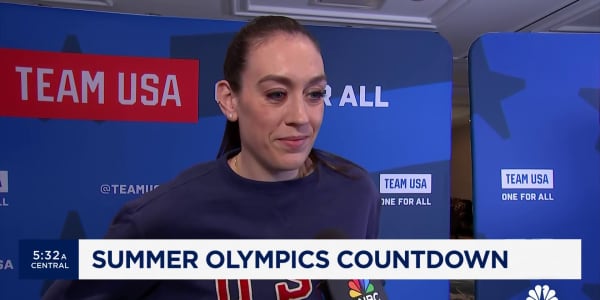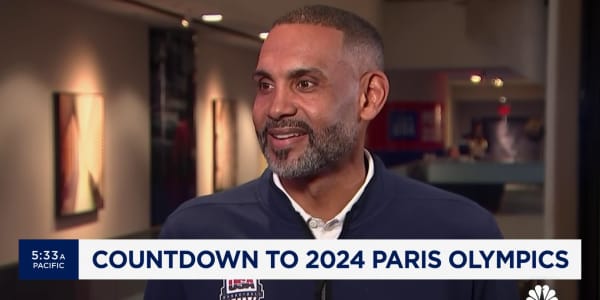India sure punches well below its weight when it comes to sports.
At every Olympic Games, rivals China and Russia walk away with multiple gold medals. For fans in India—one of the world's most populous nations and fastest growing economies—the event is an exercise in despair.
India has managed just one gold medal since 1980, when shooter Abhinav Bindra became the first individual to win gold for his country at the 10 meter air rifle event in 2008. The country's previous gold medals, eight between 1928-1980, were all in field hockey.
To put India's historic performance in context, Michael Phelps has won as many medals on his own as Team India has managed since 1900.
Granted, the 2016 Games are still on-going. So far, badminton star P.V. Sindhu has won the silver medal at the women's singles competition on Friday. Thursday saw Sakshi Malik take bronze at the 58kg women's wrestling category, India's first medal at Rio.
Hopes were high running into the Rio Olympics after the country snagged six medals in London in 2012 and sent its largest ever contingent to this year's event. The shallow medals haul has, therefore, sparked debate on the likely reasons.
The nation boasts immense human diversity, with limbs and muscles of all sizes, so race or genetic characteristics aren't a valid explanation, said Anirudh Krishna, professor at Duke University, and co-author of a 2008 paper called 'Why do some countries win more Olympic medals?'
High poverty levels aren't a sufficient reason either, seeing as other countries with low levels of per-capita income, such as Kenya and Jamaica, consistently fare better, he added.
"India does not have a sports culture," explained Boria Majumdar, a leading Indian sports scholar who's authored numerous books on the topic. Indian athletes who have achieved international success are exceptions rather than products of the country's sports system, he said.
"Unless there is a synergized sports culture you will never win a string of medals. A fundamental overhaul is needed and urgently so."
Indeed, education tends be the highest priority for the average Indian household instead of extra-curricular activities such as sports. A popular Hindi saying roughly translates to "if you study hard you will live like a king but if you play sports you will ruin your life."
"Indians, over the decades, have been mostly pre-occupied climbing the socio-economic ladder. Consequently, the pool of talent created at the local community, school and university levels, leaves much to be desired both in terms of size and quality," said Arun Navaratna, senior economist at Australia New Zealand Bank (ANZ).
Moreover, there's little support for those who display athletic prowess.
"Scarce public investible resources have eluded sports.This is further compounded by misallocation, lack of transparency, poor asset management and an absence of a framework for measuring impact of public spending. This is unlikely to change, despite the government's best intentions," Navaratna said.
There are scholarships and endowments for athletes that guarantee a basic minimum standard of living, but this system is fraught with bureaucratic red tape, political interference, conflicts of interest and corruption, he noted.
Sporting associations itself are no strangers to scandals.
In 2012, the Indian Olympic Association (IOA) was suspended from the International Olympic Committee (IOC) for electing leaders with pending criminal charges, forcing Indian athletes to compete at the Sochi Winter Games under the IOC flag instead of the Indian banner. CNBC's calls and emails to the IOA went unanswered.
Early this year, a National Sports Ethics Commission Bill was introduced in the Indian parliament in an attempt to order to improve the overall integrity of sporting culture.
Some meanwhile blame the selection of Olympic sports itself.
"With the exception of hockey, Indian sport tends to be focused on events that are not included in the Olympics, most importantly cricket," PricewaterhouseCoopers (PWC) said in a June report.

But perhaps more than anything else, omnipresent inequality may be the driver behind national underperformance.
"The root problem, as I see it, is one of limited and ineffective participation, arising from the difficulties in gaining access to [serious sports training]," Krishna stated. "Much of the country's talent remains undetected; it takes a degree of privilege to be a serious competitor."
South Korea, a country of only 50 million people, consistently ranks ahead of India because almost every Korean knows what the Olympic Games are and has a chance to attend a high school, he noted.
For Prime Minister Narendra Modi, there are several economic incentives for improving the nation's Olympic record.
"Helping individuals advance to the limits of their potential in diverse arenas—including sports—is the development strategy of the future," said Krishna, who noted India's performance in relation to its human potential consistently ranks at the bottom of world rankings.
Jamaica—a country that the World Bank calls one of the slowest growing in the developing world—could serve for inspiration for Modi. Following heavy investment in organized and informal infrastructure for athletics, it now prides itself on being home to the world's fastest man and woman this year.
While Modi's administration may be constrained on the expenditure front, it could certainly do more to define a scheme and partially fund public-private partnerships for sports infrastructure and services, such as coaching or event management, according to Navaratna.
Administering fiscal incentives would also help, such as tax exemptions for earnings from sports or reduction in import duties on expensive sports equipment, he added.
"India needs to invest in the long term, not expecting miracles at the touch of a button," summed up Krishna.




